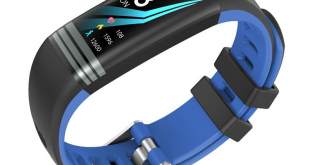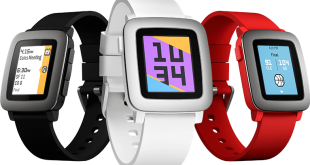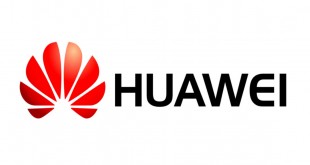Smartphones have become a thing of the past: wearables are all the rage now! Just kidding, I would never give up my smartphone and I’m sure you wouldn’t either. I wouldn’t exchange my smartphone for wearables mainly because the limited interaction area – or display – wearables have to offer. I enjoy using my phone to play games, watch videos, read books and magazines, and all of these are activities that would be tiresome to use on wearables. Wristwatches, rings, smart glasses and the sort just don’t offer me the entertainment my phone does. So why are they so popular?
Fact of the matter is that wearables are much more practical than smartphones. They’re small, allow you to do just the most important tasks you need it for, without bloatware and distractions and make for fast interaction with social media or news sites, for example. Notifications and messages are right there in front of you and don’t require unnecessary activity on your part in order to gain access to them. It all sounds great, so we can kind of deduce that wearables are the perfect gadgets to use in a workplace.
I’ve worked in the service industry for quite a while, and since I’ve been reading a lot about wearables and have been experimenting with smartwatches, I can clearly see the benefits having them at work would offer. Having notifications, alerts, requests and alarms pushed right to your wrist or right in front of your eyes makes up for a lot of time you might lose when trying to communicate the same messages via phone, mail or the ol’ fashioned visitation system. Time-saving would be the main attraction of implementing wearables in the workplace, but it would have other benefits too.
You can think of construction sites, service industry, business, politics, entertainment and journalism a bit and I’m sure you’ll realize that a wearable device would be much more suited for the working conditions in these fields than a smartphone or a tablet. So that’s why all the hype! Smartwatches have been swarming all around us lately, with at least 5 of them to be released this month only. From practical like the Samsung Galaxy Gear S to stylish as the LG G Watch R, smartwatches offer the convenience of interacting with the internet, your friends and contacts, social media, maps, delivery services, etc right from your wrist. The Galaxy Gear S doesn’t even need a phone to do all these things like most other smartwatches do, it’s simply capable of standing alone and independent. Right there on your wrist.
Smartwatches would be a profitable and cheap implementation of wearable technology in the workplace, making it easier and faster to communicate on a network set up for employees using either Android Wear or any other platform you like. Employees and employers can interact immediately without having to interrupt tasks, meetings, schedules or bathroom brakes. It also makes it much safer to communicate, since you don’t have to fiddle with a phone in order to get to your notifications. In hazardous work environments, for example, the use of gloves and goggles is very common, making the handling of a device extremely difficult and dangerous, so a smartwatch would be the answer to this issue. A better answer would be smart glasses, though, which can be worn under goggles and with which you can interact solely by voice commands.
One might say that using a wearable device might be a distraction from the workplace, influencing employers and employees to abandon tasks and pay attention to other mediums, irrelevant to the work environment. That would be a plausible concern, but what about network restrictions? What about designated wearabled devices? Devices that only cater to a certain field, like smartwatches designed for geologists, to monitor and test soil, climate, movement and the likes would not be distractions. Devices that facilitate placing orders and picking them up in the service industry would decrease the time spent by waiters, for example, waiting around for their order to be done, unsure whether they have time to greet a new customer. A smart little gadget would even help waiters send the orders to bartenders without having to go up a flight of stairs, for example.
In any case, wearable devices, no matter what kind, would greatly improve the work environment if properly designed, provided with appropriate software and hardware and used according to work necessities. There has been progress in this direction from many employers who tried implementing wearable tech in the workplace. Vandrico, for example, has developed a platform for wearable devices, designed especially for use in the workplace. Dubbed “Canary”, the platform has already been implemented in various companies for testing and research purposes, so the final product is near completion. Canary mainly works as a platform which allows notifications and alerts to be sent directly to employees, alongside tasks, of course. It’s a first step in implementing wearable technology in the workplace and I’m sure it will catch on. What’s neat about it is that it works across many types of devices, including phones, smartwatches and smart glasses and can be configured to work on an internal network, which is exactly the kind of specific implementation I was talking about earlier.
Since wearable tech has just seriously kicked off with major releases coming from Samsung, Sony, Asus, LG, Motorola at IFA Berlin, and even an Apple iWatch is planned for this Fall, the implementation of this tech into the workplace will become not only easier, but imminent.
 Load the Game Video Games, Reviews, Game News, Game Reviews & Game Video Trailers
Load the Game Video Games, Reviews, Game News, Game Reviews & Game Video Trailers



